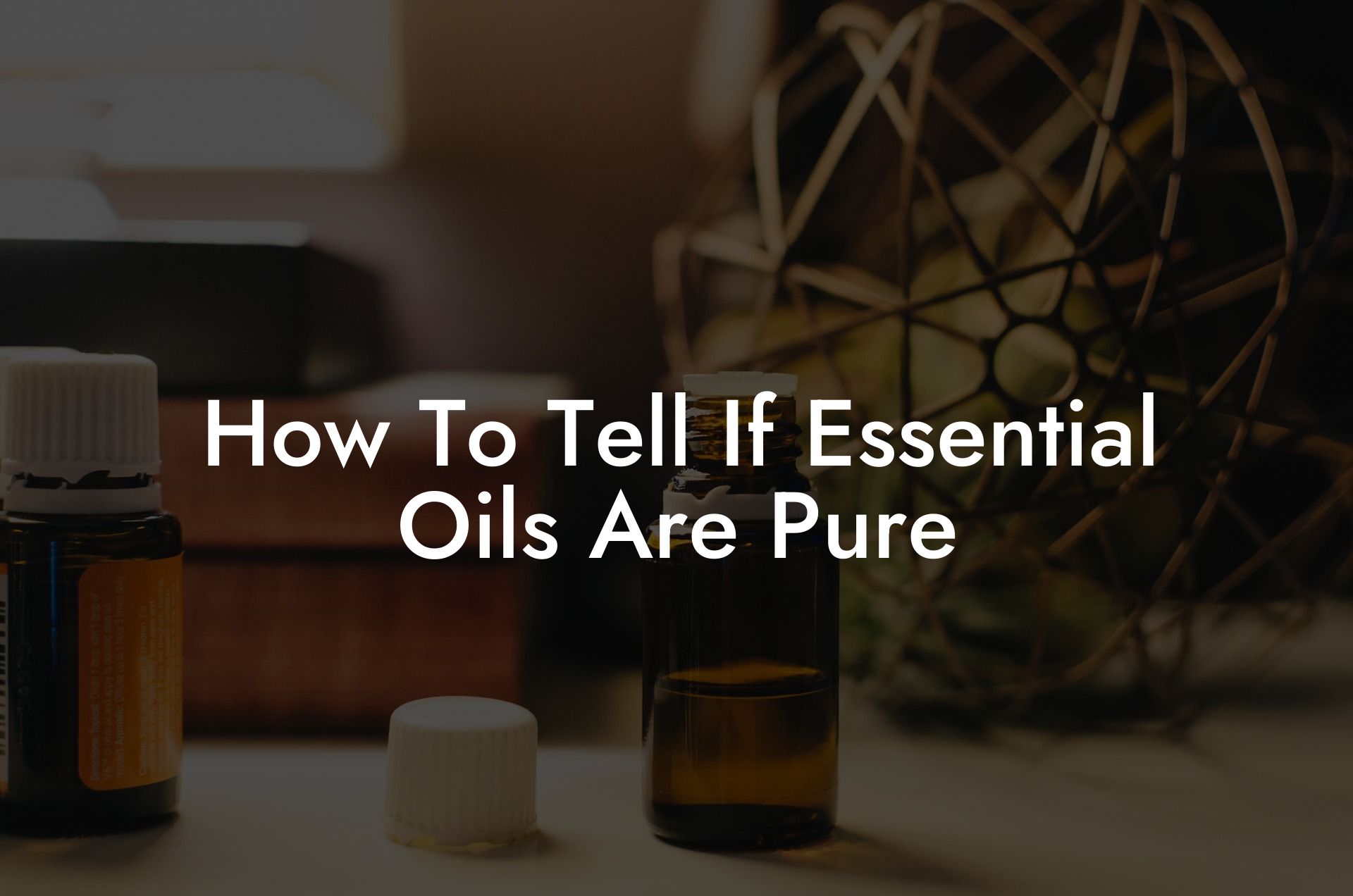Are you on the hunt for the perfect essential oil, yet uncertain about its authenticity? The purity of your essential oil is crucial to ensure that you receive the optimal therapeutic benefits for which you’re seeking. This comprehensive guide will help you demystify the process of determining essential oil purity and teach you best practices for identifying genuine, high-quality products that are perfect for your needs.
Table of Contents
Understand the Importance of Purity
When it comes to essential oils, purity is everything. Pure essential oils offer numerous benefits, such as stress relief, mood enhancement, improved sleep, and an overall sense of well-being. On the other hand, oils contaminated with synthetic chemicals, fillers, or diluted with carrier oils can be ineffective at best and potentially harmful at worst.
Common Impurities in Essential Oils
Some essential oils on the market may contain impurities, which can include:
- Synthetic additives
- Diluted with carrier oils
- Chemical solvents from extraction process
- Pesticides or other contaminants from the plant material
Research the Company and its Manufacturing Process
Before purchasing essential oils, it’s essential to research the company and its manufacturing process. This will provide insight into the brand’s commitment to quality and purity.
Company Reputation
- Is the company well-known and respected in the essential oils industry?
- Does the company have positive reviews and testimonials from customers?
- Does the company provide detailed information about their process for sourcing and producing essential oils?
Manufacturing and Quality Control
- Does the company use a steam distillation or cold-press extraction method?
- Are the oils certified organic or wildcrafted?
- Does the company employ an in-house quality control team or use third-party testing to ensure purity and potency?
Examine the Packaging and Labeling
When shopping for essential oils, pay close attention to the packaging and labeling. High-quality essential oils should be packaged in dark glass bottles, as they protect the oil from exposure to light, which can degrade its quality. Additionally, the label should provide transparent, detailed information about the oil, including:
- The Latin name of the plant (i.e., Lavandula angustifolia for Lavender)
- Country of origin
- Extraction method
- Any certifications (e.g., USDA Organic, GC/MS tested)
- Expiration date or batch number
Perform a Sensory Test
One of the simplest ways to determine the purity of an essential oil is to use your senses. Test the aroma, appearance, and feel of the oil to evaluate its quality.
Aroma
- Does the aroma smell natural and true to the plant?
- Are there any overpowering, synthetic, or chemical-like odors?
Appearance
- Does the oil have a consistent color and clarity?
- Are there any signs of cloudiness or particulate matter floating in the oil?
Feel
- Does the oil feel greasy or excessively thick?
- Does it absorb quickly into your skin without leaving a residue?
How To Tell If Essential Oils Are Pure Example:
Imagine you are shopping for a pure lavender essential oil. You find two brands that interest you – one is from a well-known, reputable company with positive reviews, and the other is from an unknown brand with vague information about their manufacturing practices. The first brand comes in a dark amber glass bottle, has the Latin name for lavender on the label, and is certified organic. The second brand is in a plastic bottle and does not provide the Latin name or any certifications.
Upon conducting a sensory test, you find that the first brand’s oil has a natural, pleasant aroma that is true to the lavender plant, has a consistent color and clarity, and absorbs quickly into your skin. The second brand has a synthetic, overpowering aroma, cloudy appearance, and leaves a greasy residue. Based on this information, it is evident that the first brand is of higher quality and purity.
Now that you have the knowledge and tools to identify genuine, pure essential oils, it’s time to explore the world of aromacology and all the benefits it offers. Share this guide with your friends to empower them to make informed choices when shopping for essential oils. Dive deeper into our other informative guides on Oshu Oils’ blog and find the perfect essential oil from our expertly crafted, artisan range to elevate your well-being.





















